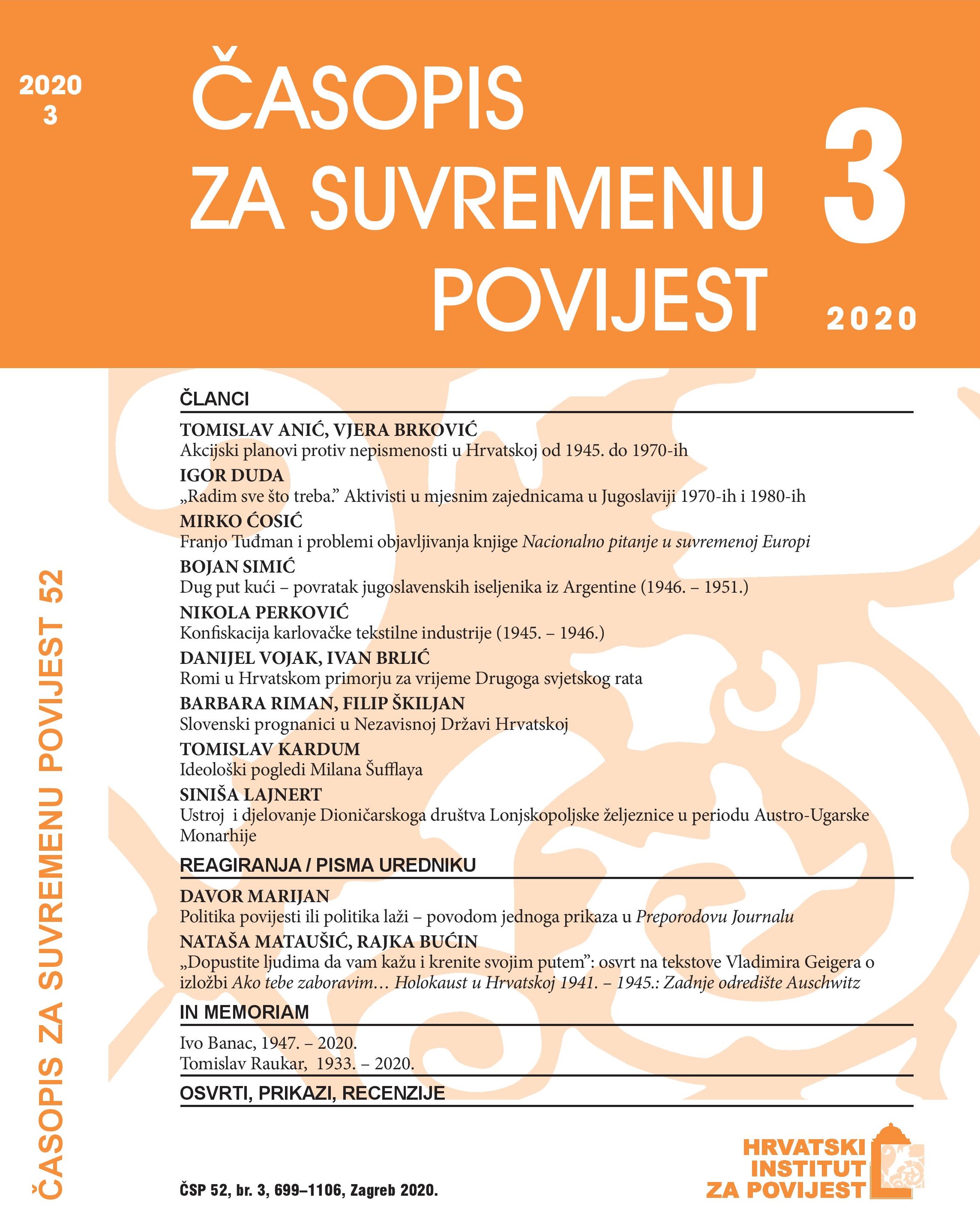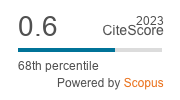The Roma Population in the Croatian Littoral Area during World War II
DOI:
https://doi.org/10.22586/csp.v52i3.9982Keywords:
Roma; World War II; Independent State of Croatia; Italy; Fascism; Ustasha; Croatian LittoralAbstract
During World War II, the Roma population in Croatia was exposed to the repression and assimilation policy of several authorities. Ustasha authorities in the Independent State of Croatia persecuted Roma based on racial laws aimed at their genocidal extermination. This paper analyses the position of Roma in some present-day Croatian areas, especially in the Croatian Littoral, which were under Italian (Fascist) rule during the war. Only a few dozen Roma lived in these border areas before the war, who were already subject to the repressive-assimilation policies of the official Italian authorities. This is evidenced by the provisions issued by the aforementioned authorities with the aim of better monitoring the movement of Roma in the Italian–Yugoslav border area. As World War II approached, it was noticeable that the Italian authorities’ relationship with the Roma was intensifying, because they feared, first and foremost, Roma espionage and association with the anti-fascist (communist) resistance movement. The deportation of Roma from the wider Istrian area to internment camps in southern Italy, Sardinia, etc. must be observed in this context. According to other Roma living in the Croatian Littoral, the Italian authorities often sought to control their movements, especially after the establishment of the Independent State of Croatia in April 1941, when attempts were made to reach the Roma in areas under Italian rule. This paper studies the attitude of Croatian anti-fascists towards the Roma. Some tension (conflicts) can be seen in the perception of the indigenous population towards the Roma, in this case in the Omišalj area on the island of Krk. The Roma population managed to survive the war in the Croatian Littoral area, though a considerable number of them died.
Downloads
Published
How to Cite
Issue
Section
License
Copyright (c) 2020 authors and journal

This work is licensed under a Creative Commons Attribution-NonCommercial 4.0 International License.
Copyright holders are the publisher Croatian Institute of History and the authors. Journal of Contemporary History is an Open Access journal. Users are allowed to read, download, copy, redistribute, print, search and link to material, and alter, transform, or build upon the material, or use them for any other lawful purpose as long as they attribute the source in an appropriate manner according to the Creative Commons licence CC BY-NC. The papers published in Journal of Contemporary History can be deposited and self-archived in the institutional and thematic repositories providing the link to the journal's web pages and HRČAK. Journal does not charge article processing charges (APC). The editors assume no responsibility for statements of fact or opinion made by contributors.




